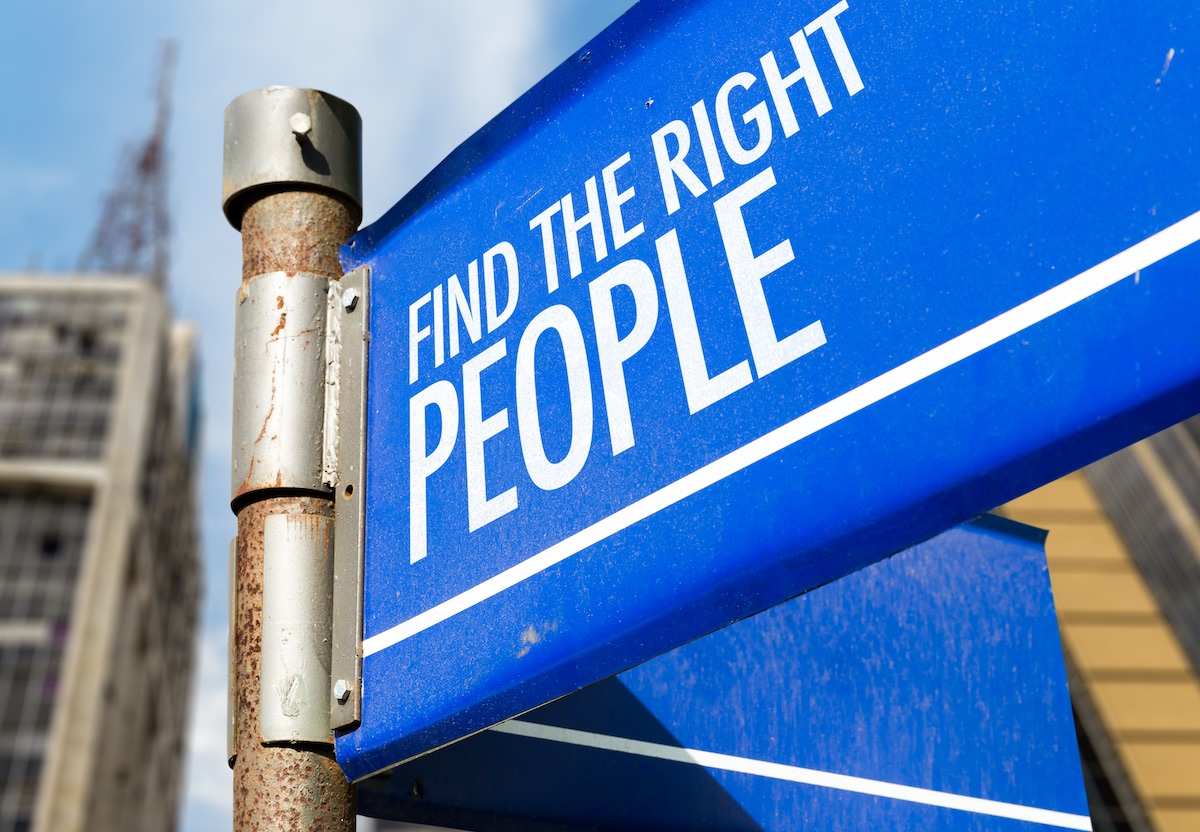Angels and Devils – 7 Psychological traps of interviewing
Any interviewing process exposes recruiters and hiring managers to cognitive biases – psychological errors of judgement that are the source of all sorts of untruths. Exclusively relying only on your gut feeling could be costing you a good hire.
Bernadette Eichner

Interviewing is something Recruiters and Hiring Managers do every day. For recruiters, it’s the key component of the evaluation process; for Hiring Managers, it is the essential prelude to the hiring decision – a decision that can be very costly if you get it wrong.
The very best interviews are objective and fair assessments of a person using a wide range of information – their background, skills, experience, personality and presentation at the time. Journalists and psychologists are skilled at this – effectively gathering and objectively evaluating information to reach a reliable conclusion. Recruiters and Hiring Managers, on the other hand, aren’t universally so competent.
Not true, I hear you say. You’re a brilliant judge of people. Your gut feeling is completely reliable. You’ve been doing this for years and can pick a winner from a loser in five minutes. But if you believe any of these things to be true, it’s likely you fall into one or more psychological traps every time you interview. And this could be costing you a good hire.
Interviewing professionally, objectively and effectively is not as easy as you think. There are angels and devils everywhere – dressed up as cognitive biases, or more simply, psychological traps, they sit on the untrained shoulder and whisper all sorts of untruths. Unless you’ve been trained as a Psychologist, or attended a professionally structured workshop on the topic, there is very little formal training available about how to effectively and objectively interview a candidate to ensure you have the correct information you need to make the best decision.
What is Cognitive Bias?
A cognitive bias is a systematic error in thinking that affects the quality of our decisions and judgements. It occurs when we use shortcuts in our thinking – shortcuts that are based on our personal experience and what we have learned to be true from our upbringing, socialisation, education, religion or from the immediate world around us. Often called rules of thumb, they enable us to quickly make sense of the world around us and reach decisions quickly. And that’s where the problem starts – these rules of thumb are directly borne out of our personal experience. And if our personal experience is narrow and uneducated, then so too will be our view of the world. Let’s put it this way – if our happy personal experience is all white bread and mayonnaise, then by nature, we’re going to be cautious approaching anything more interesting than that.
Everyone exhibits cognitive bias. It’s the human condition and how we’ve survived for millenia. The most common ones are only being interested in news articles that confirm your own opinion, looking for external reasons and blaming others when things don’t go your way, attributing other people’s success to luck rather than acknowledging they may be better at something than you, assuming that everyone else thinks the same way you do about things, and thinking you know everything about a topic you’ve learned a little bit about.
But in the modern world, we need to be more evolved.
The 7 Cognitive Biases that impact the hiring process
It’s generally accepted there are 25 cognitive biases but today we’re just going to look at the 7 that have the potential to sink the Good Ship Hiring.
1. Ingroup Preference Bias
Humans are tribal by nature and we tend to divide ourselves into groups – at home, at work and in our communities – and we then attribute positive attributes to our own group. For example, everyone in our group believes that Donald Trump is an idiot, so therefore others who think the same must be one of us and believe all the other things we believe. Recruiters and Hiring Managers who perceive commonalities with applicants are more likely to view them too favourably and sometimes overlook any shortcomings. But it could be one of those shortcomings that makes the applicant unsuitable for the job!.
2. Halo Effect
This is when we make the assumption that because someone is good or bad at one thing, they’re likely to be equally good or bad at other things. A shallow example of this is when someone arrives at an interview dressed like we think a leader should dress, so we assume they must be a good leader. A more academic example is that because someone has a high achieving academic record, we conclude they are also a strong leader, when there is no objective evidence of that. The Halo effect can sometimes be a spin-off of the Ingroup Preference bias.
3. Fundamental Attribution Error
This is when we over-emphasise personal factors and under-estimate situational factors to explain a person’s behaviour. A common example of this is when a candidate is late for an interview. In most cases, recruiters and hiring managers conclude the person is disorganised or lazy rather than considering that road closures in the areas may have caused them some difficulty getting to the interview. Another example I encountered recently was where a more mature employee tripped and fell and it was decided they were clumsy and unable to keep their balance, when in actual fact, the cord they tripped over should never have been where it was if WHS processes had been followed.
4. Confirmation Bias
This is perhaps the most common bias of all – when we subconsciously pay more attention to information that reinforces our already-held beliefs and ignores evidence to the contrary. We see this a lot in political ideology, and highly-charged social movements such as feminism, Black Lives Matter and the climate change debate. Common in the recruitment sphere is the notion that men are better at STEM jobs than women, so a recruiter or hiring manager might selectively focus on aspects of male resumes that highlight this belief.
5. Anchoring Bias
This can be an issue when you’re interviewing multiple candidates for the same job. Anchoring bias is when we over-rely on the first piece of information we get and then use it as the baseline for comparison. For example, if the first candidate has an unusually high score on a skills test, it might set the bar so high that subsequent candidates with quite normal and acceptable scores seem less qualified than they otherwise would.
6. Choice-supportive Bias
This bias kicks in when we’re making our final hiring decision but it can be just as dangerous as the others. Once a decision is made, people tend to over-focus on its benefits and minimize its flaws in order to justify their decision. This is quite common in times when there are two candidates who are both worthy and we look for something in their application that can rationalise our decision. For example, “The last person we hired came from ANU and that worked out really well”.
7. Overconfidence Bias
After 30 years in the business, I can hand on heart say that good old overconfidence bias is alive and well in the recruitment industry! We see this bias in play when the recruiter is so confident of their interviewing and evaluation skills that they make decisions about a candidate based on what they think, rather than what the candidate actually demonstrates in the interview. This is not to say that recruiters don’t know what they are doing. They do. But a truly professional recruiter will recognise they don’t know everything about everything and take a planned, considered and objective approach to the interview process.
How do we avoid falling into these psychological traps?
First of all, know about them – now you do!
Secondly, accept that they apply to you – after all, you’re only human. None of us know everything about everything and even less so when it comes to other humans!
And last but not least, plan your interview process to ensure you are being fair and objective from the outset. The best way to do this is to take a behavioural interviewing approach and apply it equally to every candidate.
What you uncover may surprise you.
Bernadette Eichner
Bernadette Eichner, Cofounder and CEO of Just Right People, is a recruitment industry entrepreneur and thought leader in Australia, totally committed to improving the recruiter experience for clients and candidates alike. Her secret to life is to “just do the next thing that needs to be done”.
Follow Bernadette

